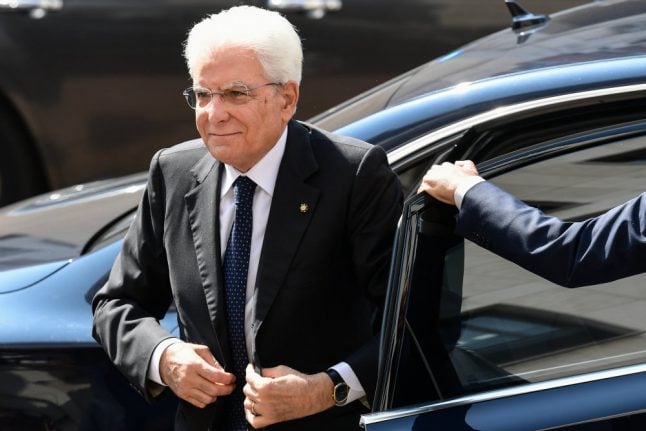President Sergio Mattarella is tasked with charting a path out of the impasse in the eurozone's third largest economy, after the partnership between the anti-establishment Five Star Movement (M5S) and the far-right League disintegrated this month and the prime minister resigned.
He has given the parties until Monday night to come to an agreement, according to reports, but if no solid majority emerges he will call an early election for November 10th — less than two years after the last parliamentary vote.
Hardline Interior Minister Matteo Salvini sparked the crisis by pulling the plug on the governing coalition earlier this month, leading to the resignation on Tuesday of Prime Minister Giuseppe Conte.
M5S, which is the largest party in parliament but has haemorrhaged support during its fractious time in power with Salvini's League, has indicated it is open to an alliance with the centre-left Democratic Party (PD) instead.
That would be a sharp reversal of relations after years of vicious arguments.
READ ALSO: Why do Italy's governments collapse so often?
But talks between the two appear to be going well and PD leader Nicola Zingaretti on Saturday said that on finding shared policy goals, “we are open and available for all types of discussion”.
“We continue to work to open a new political season,” he added.
Mattarella, whose meetings with parties may extend into Wednesday, has said any new coalition must have an agreed platform that could pass parliament, after months of political clashes between M5S and the League over several high profile policies.
Both parties agree on the idea of slashing the number of lawmakers in parliament from 950 to around 600, as well as environmental protection and economic policies designed to help the weakest in society.
Analysts see a new coalition as a realistic solution to the crisis.
“In terms of the parliament, it is possible. They have enough seats (to secure a majority). For (policy) agreements too,” said Emiliana De Blasio, professor of political innovation at Luiss University in Rome.
“I think there is a good chance we will have a new government in September,” she told AFP.
The clock is ticking to ease the political turmoil, with Italy under pressure to approve a budget in the next few months.
If it fails it could face an automatic rise in value-added tax that would hit the least well-off families the hardest and likely plunge the country's already strained economy into recession.
READ ALSO: Talks to form new Italy coalition 'positive'
There are still strong headwinds to the political talks, with media reports suggesting a key area of contention is a potential change of premier.
Italian media say that M5S leader Luigi Di Maio is eager to reappoint Conte, but PD's Zingaretti wants a change of course, including a radical shift in Italy's zero-tolerance policy on taking in migrants crossing the Mediterranean.
Conte, who is popular in Italy, launched a blistering attack on Salvini in his pre-resignation address to the Senate on Tuesday, calling the League leader “irresponsible” for instigating the crisis.
The outgoing premier won support from EU Council president Donald Tusk, who said during the G7 summit that Conte — a soft-spoken former law lecturer — “was always extremely tough in defending Italian national interest”.
Salvini has moved to backtrack on his earlier attempt to force new elections by offering to reconcile with M5S, dangling the idea of a new government led by Di Maio.
“I will do everything to stop a PD-M5S government,” he has said.
The League had seen its support balloon since joining government as the junior coalition partner after elections in March last year.
But recent polling suggests that support is collapsing since Salvini pulled support for the coalition on August 8th.
A poll by the Tecne Institute on Friday put the League at 31.3 percent — down from a record of 38 percent on August 8th — with PD at 24.6 percent and M5S on 20.8 percent.



 Please whitelist us to continue reading.
Please whitelist us to continue reading.
Member comments